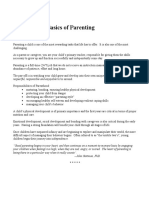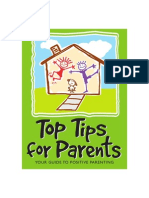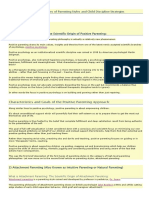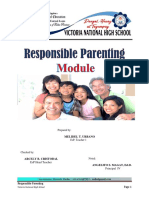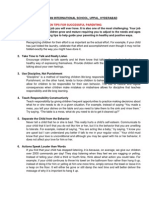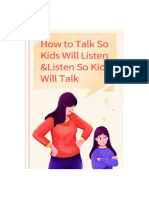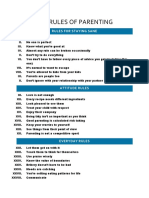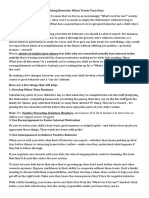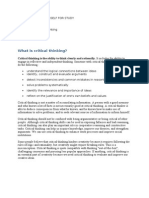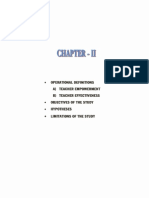50% found this document useful (2 votes)
577 views37 pagesPositive Parenting Keynote
This document provides information on positive parenting, including developmental stages, parenting styles, and tips and techniques. It discusses Erikson's psychosocial stages of development and the importance of care, trust, independence, and initiative. It outlines three parenting styles - authoritarian, permissive, and authoritative - and gives examples. The document provides strategies for changing behaviors, empowering children, redirecting, and discussing feelings. It also includes resources for further reading.
Uploaded by
cissuzieCopyright
© Attribution Non-Commercial (BY-NC)
We take content rights seriously. If you suspect this is your content, claim it here.
Available Formats
Download as PDF, TXT or read online on Scribd
50% found this document useful (2 votes)
577 views37 pagesPositive Parenting Keynote
This document provides information on positive parenting, including developmental stages, parenting styles, and tips and techniques. It discusses Erikson's psychosocial stages of development and the importance of care, trust, independence, and initiative. It outlines three parenting styles - authoritarian, permissive, and authoritative - and gives examples. The document provides strategies for changing behaviors, empowering children, redirecting, and discussing feelings. It also includes resources for further reading.
Uploaded by
cissuzieCopyright
© Attribution Non-Commercial (BY-NC)
We take content rights seriously. If you suspect this is your content, claim it here.
Available Formats
Download as PDF, TXT or read online on Scribd
/ 37



